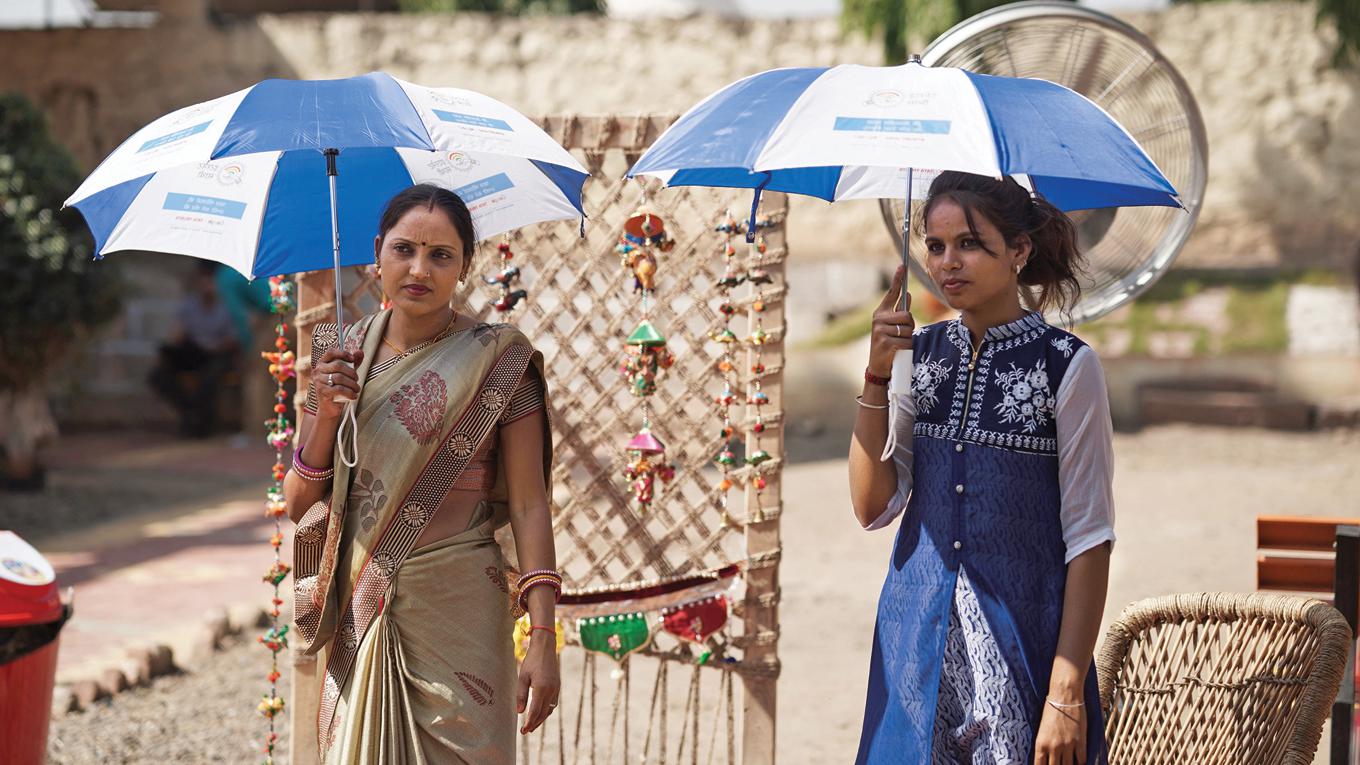-

Internet Saathis at work
want to stand on my own feet and get a good job. I have updated my resume and have also registered myself with an online job site. I also want to set up a business on tailoring and sewing”, said Hemlata, a 20-year-old Internet Saathi from Bhagwanpur, a small town in Bihar. Shrimati, from Viparpur village, a small town of Dholpur District in Rajasthan, recalled how she was unaware of the concept of the internet, and wanted to learn more. However, no one, including her husband or her nephew, helped her in understanding this. It was only when she attended a Self-Help Group (SHG) meeting in her village that she came to know of this programme and instinctively enrolled for the sessions. Shrimati admitted being made fun of, at first. “I was disappointed, but I was also determined. I showed faith in myself, and attended the training sessions,” she said. “My fingers quivered at the idea of touching the screen of a smartphone”, Shrimati quipped immediately after. Today, Hemalata and Shrimati are trained, confident, and fully able to use a smartphone through the Internet Saathi programme. One of the key barriers for low adoption of Internet amongst women in rural India is the lack of awareness about the Internet and the belief that Internet is not for them. In addition, factors such as affordability, and low literacy rates have also prevented women from using the Internet. India has the world’s second-largest Internet population with over 40 crore users. However, only 35 per cent of the Internet users are women. This is one of the largest technology gender gaps in the world. The gap further widens as we move towards rural India. While Internet penetration among women in metros is now on a par with men, Internet penetration in rural India continues to be extremely low. In July 2015, Tata Trusts, along with Google, launched a digital literacy programme ‘Internet Saathi’, to help women in rural India understand the benefits of Internet in their day to day life. The programme focusses on training women in rural India to explore the various uses of the Internet. These women go on to become Internet Saathis, who then impart training to women in the larger rural community in their own and in neighbouring villages. The programme is a blend of synergy between the two organisations. While Google provides Internet-enabled devices and has developed the training and curriculum, Tata Trusts, with its vast experience of engaging with rural communities through a network of on-ground implementation partners across India, is instrumental in the roll-out of the initiative.
-
A key barrier for low adoption of Internet amongst women in rural India is lack of awareness
Using the ‘train the trainer’ model, women in villages were trained and encouraged to explore the world of Internet and help reduce the digital gender divide in rural India. By 2019, the programme is live in over 251,000 villages across 18 states in India. About 2.5 crore women have already benefited from the programme. It has a network of 69,000+ trained Internet Saathis across these states. The aim is to introduce women to the Internet and its benefits across 3,00,000 villages by end of this year.
The Internet Saathi programme has also led to positive socio-economic impact for rural communities. As per an IOPOS research on the programme in 2017, women trained by Internet Saathis were twice more likely to express themselves in village-level meetings, and 3.5 times more likely to join other social causes. 45 per cent of women trained by Internet Saathis believe they have increased their income by learning a new skill, and 57 per cent of them feel they have learnt better ways of investing their money.
To sustain the momentum created by the Internet Saathis, an entity – Foundation for Rural Entrepreneurship Development (FREND) has been created by Tata Trusts, to serve as a vehicle for other like-minded organisations, and institutions, to utilise the Internet Saathi network and enable dissemination of information and services in the rural areas; thereby, creating newer avenues of income for these women in rural India. So far, programmes of organisations like United Nations Development Programme (UNDP), United Nations Children’s Fund (UNICEF), and CISCO have been implemented by FREND. The foundation has been skilling and training Internet Saathis to become business mentors, guiding them to start their own enterprise, helping in spreading awareness about financial literacy and nutrition for women in different life cycles, and taking up issues like prevention of child marriage.
Biogas
BioEnergy will showcase its innovative biogas technology in India
Mobility
Ather aims to produce 20,000 units every month, soon
Green Hydrogen
German Development Agency, GIZ is working on a roadmap for a green hydrogen cluster in Kochi
Renewable Energy
AGEL set to play a big role in India’s carbon neutrality target



















